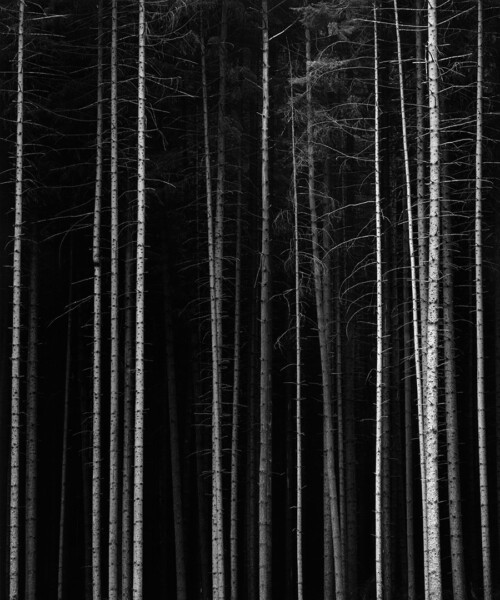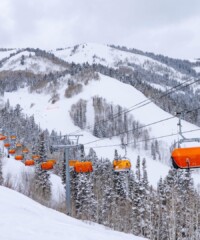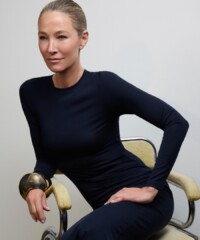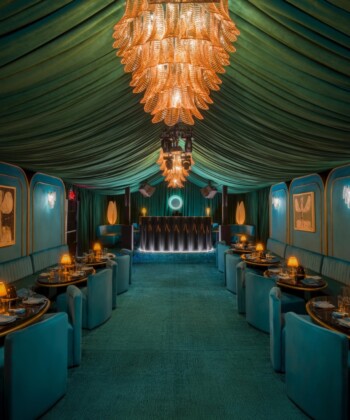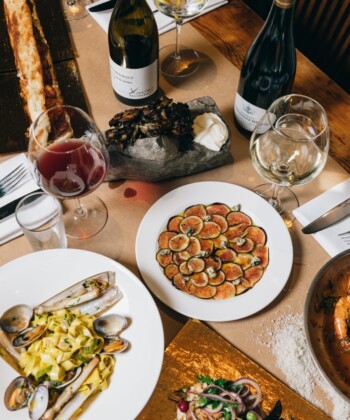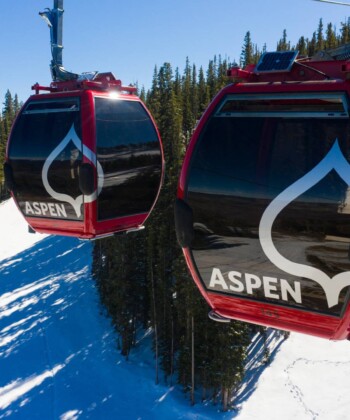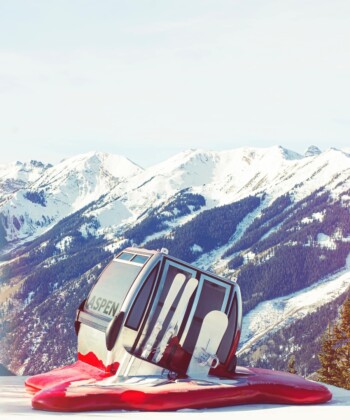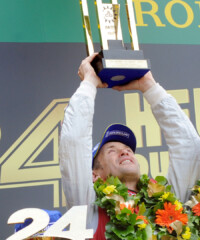By the time Nancy was in high school in the early ’70s, Aspen had begun to usher in an era Hunter Thompson described as a “wild and incredible dope orgy.” The movie stars came not long after. “Nancy was right in the middle of that scene,” Clayton remembers. “I mean, if you could see all the people that rode in that red Porsche with her, everyone from Steve Martin to the Dalai Lama.”
They often ended up at Thompson’s place, where he sometimes wandered around stark naked, hopped up on mescaline, shooting his .44 magnum at targets he’d set up around his property. Aspen was in the midst of a great battle, he would say—his cigarette holder jabbed in the side of his mouth—that pitted the “subdividers, ski pimps and land developers” against the hippies who “still valued a good place to live.”
Nancy cheered when the mayor cut down highway billboards, but realized, like Thompson and all the other environmentalists, that you could only hold back change for so long. By the early ’80s, the trickle of movie stars, as Conover wrote, had “swelled into a flood,” and the billionaires who would raze trees to erect massive homes weren’t too far behind.
Aspen was increasingly becoming a place that consisted of two worlds: the cosmopolitan small town that was tasteful and refined, with great thinkers, environmentalists and a world-class opera house, and the town as it existed to outsiders, “a place for pleasure and escape…a Never-Never Land,” as Conover put it. While all locals were influenced by both worlds to some extent, no one occupied them quite to the extent Nancy did.
“There was a certain overlap between outside wealth and glamour and the old, privileged Aspen, and Nancy loved that space,” Conover says. “She really embodied what Aspen was in that era.” But as Aspen changed, so did Nancy. Clayton could see it happening. “When I knew her, she was just a small-town girl,” he remembers. “She loved horses, she loved to ski, she was a tomboy. And then all those people, Michael Douglas, Jack Nicholson, they took her out of there and introduced her to the world.”
At the same time, Nancy felt deeply uncomfortable with what Aspen was becoming, and often opposed her father’s development of Buttermilk Mountain, even joining committees to stop the project. While she remained especially close with her dad, and in love with her hometown, she began searching for the untrammeled and raw experiences in nature she had experienced as a child. She traveled to Nepal and Indonesia, and when she had her only child, Juliana, in 1986, she took the baby with her wherever she went. They lived off and on in an abandoned sugar mill in Hawaii and spent months at a time in Bali and Thailand.
“At times it was hard for me,” Juliana says now. “It was like, ‘Why do I have to eat this weird food, and why am I up till one-thirty in the morning at this art show? Why are we in this weird country? I just want to be with my friends at school.’ But it was also awesome. The things that once made me embarrassed I now look back on with so much gratitude.”
Once, for example, Nancy and Juliana were in St. Tropez when Nancy saw a man on the deck of an 80-foot-long mahogany sailboat.
“Hey,” she called out. “Is that your sailboat?”
When the man said it was, Nancy didn’t skip a beat. “Can my daughter and I come with you?”
“And I was like, ‘Mom, ‘cmon!’ I was so embarrassed,” Juliana says. “But now I look back and think, man, I spent like two days on the most beautiful sailboat ever. I just think, if more people were like that, imagine the experiences we’d have.”

Nancy Pfister with daughter Juliana
Paul Andersen, a writer for the Aspen Times, told the story of meeting Nancy in a recent column for the paper. He had just moved to town. It was the off-season and the pedestrian mall was empty “except for this strangely appealing woman. She came sauntering toward me,” Andersen wrote, “casually eating with chopsticks from a Chinese carry-out carton. I was drawn to her… Soon we were standing a foot apart, face-to-face, just looking at each other. What I noticed most was her eyes—mesmerizing and mischievous, like cat-eye marbles.”
Without a word, Nancy scooped up a clump of rice with her chopsticks and pushed it toward him. “I opened my mouth,” he wrote, “accepted the morsel and knew I had arrived.”
Andersen immediately fell in love with the beguiling aura Nancy possessed. Many men did—polo players, ski racers, movie stars. But Nancy never settled down, and as the years passed, friends who had once idolized her free spirit began to question some of her choices, clucking at her long absences from home and the months she’d spend away from Juliana, who stayed with family and friends while she was gone. Nancy told Juliana that she never intended to marry her father, a handsome polo player from Argentina. He was simply a baby donor, she said, someone to fill a role. This didn’t sit well in Aspen, which despite its claims of open-mindedness, can actually be quite conservative and bound by convention.
As she got older, gossip followed her. She was promiscuous, some said. Unfit to be a mother. No Pants Nance became a cruel nickname around town. Why couldn’t she be more like her two sisters, who had married and lead quiet and respectable lives? “People can become very judgmental,” Clayton says. “And I think they were jealous. For one thing, most people can’t just jump on a plane and fly wherever they want. And it bugged people that she never settled down.”
Instead, she lived a chaotic life, continually on the run. She’d call Clayton out of the blue from Stade Roland Garros, where she was watching the French Open, and hand the phone to Roman Polanski, or from Africa, where she was with Anjelica Huston. Over time, the circle of friends who could just travel with her on a moment’s notice became smaller and smaller. Friends got married, others got jobs, but Nancy remained unencumbered, free to do whatever she wanted. She began to travel alone more often. When she came back to Aspen, many of her old friends were not all that available, so she began taking on new ones that, sources say, seemed seedy, even dangerous.
NEXT: “I was very fond of her. But I also kept her at an arm’s distance.”

























